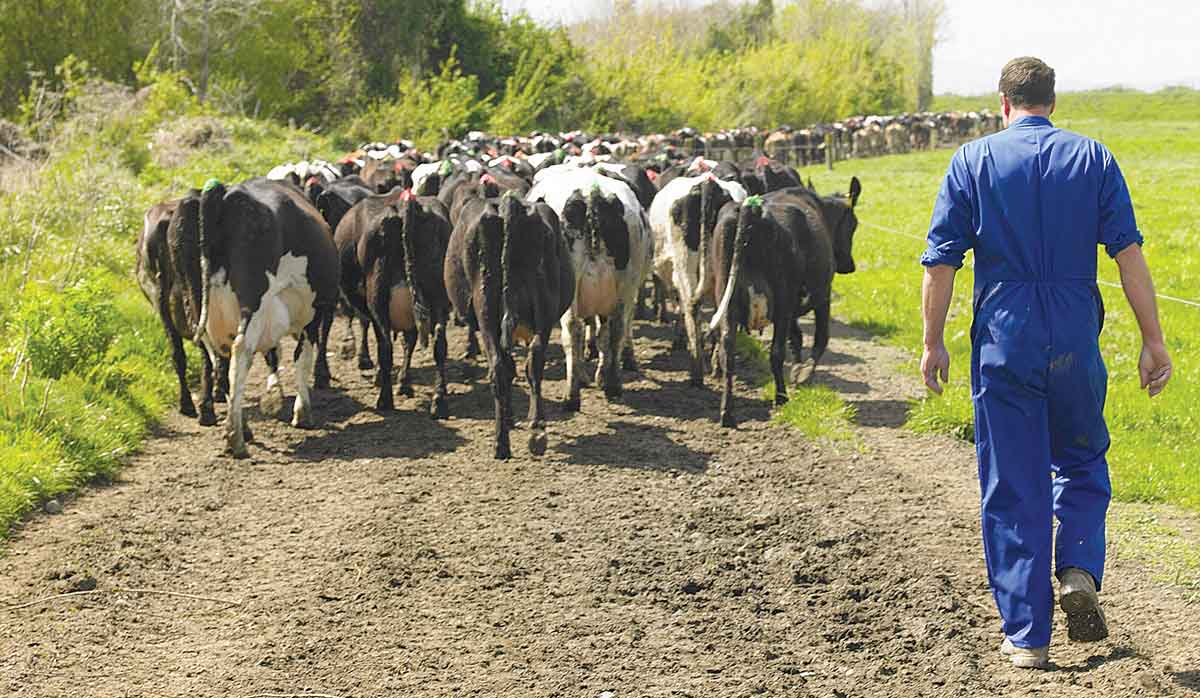DairyNZ opens applications for associate director role
DairyNZ is giving New Zealand farmers a unique opportunity to gain hands-on governance and leadership experience within the dairy sector.
Moving Day is the busiest time of the year for livestock movements.
Animal welfare and good biosecurity practices, including complying with traceability requirements, are critical over this period.
Both DairyNZ and OSPRI urge farmers to follow advice.
"When NAIT compliance is compromised, our traceability system is threatened, and we run the risk of having a system that will not perform in the event of another disease outbreak," says OSPRI.
"We ask that farmers read and understand their requirements as we embark on the Moving Day period."
DairyNZ advises that cull cows be sent to a processing facility nearby.
"Minimising transport time and distance is better for the cow and you, because risk of injury or going down increases with time and distance.
"Only transport cows that are not likely to give birth during the journey or within 24 hours of arriving at the destination: if within four weeks of calving date, travel should be less than two hours."
Farmers must make sure that animals are fit for transport by checking for the following:
It is also recommended that farmers stand stock off green feed for at least four hours, but for no more than 12 hours.
A grazed-out paddock or stand-off pad are better options because concrete surfaces can contribute to tender feet and aren't good for lying.
Continue feeding silage, hay or straw during stand-off, especially for lactating cows or prior to long-distance journeys.
DairyNZ says farmers must ensure all stock have access to water prior to loading.
"Many farmers have plumbed in a basic water trough at the yards that can be filled while the yards are in use. Remember, this will be their last chance to eat and they won't get a drink until they arrive," it says.
Lactating cows need extra calcium, in addition to extra magnesium, on the day of transport. The extra calcium could be given as an oral drench, extra allowance of a calcium-enriched meal, or a slurry poured over dry feed.
Keeping Records
All movements of cattle and deer between NAIT locations must be recorded in NAIT within 48 hours of them leaving one property and arriving at a new property.
The Person in Charge of Animals (PICA) sending the animals is resposible for recording a sending movement in NAIT. The PICA receiving the animals is responsible for recording a receiving movement.
 |
|---|
|
All movements of cattle and deer between NAIT locations must be recorded in NAIT within 48 hours. |
All animal movements between NAIT locations must be recorded, even if:
All movements of NAIT animals to and from a registered NAIT location must be recorded in NAIT within 48 hours of the animals leaving a property or arriving at a new location.
Reflecting on the past year, Horticulture New Zealand chief executive Kate Scott says there has been a lot to celebrate.
Ministry for Primary Industries (MPI) Director General Ray Smith is giving a big shout-out to the horticulture sector, especially kiwifruit.
Early forecasts for New Zealand's apples and pears point to a standout season marked by exceptional fruit quality and high pack-out rates.
Tickets are now available for Beef + Lamb New Zealand’s (B+LNZ) Out the Gate, returning from 19-21 May 2026 at Te Pae, Christchurch.
Dairy Women's Network (DWN) is welcoming AgriHealth as a new partner.
Northland Field Days patron Ross Newlove remembers the inaugural field days he attended 40 years ago.
OPINION: Fonterra may be on the verge of selling its consumer business in New Zealand, but the co-operative is not…
OPINION: What does the birth rate in China have to do with stock trading? Just ask a2 Milk Company.